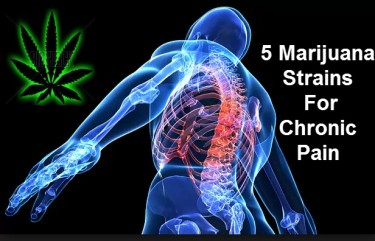
Inflammation, fatigue, chronic pain, anxiety, mental disorders, seizures, high blood pressure, and management of specified disease symptoms are some of the reasons why medical cannabis is being used as an alternate treatment. Of all these, researchers and data analysts have found that chronic pain is the most common condition described by patients for medical cannabis treatment.
Within the last five years, at least ten states in the United States of America have legalized the use of medical cannabis. Canada and a few countries in Europe have also amended their federal laws to permit the application of medical cannabis in treating some conditions. This has led to hundreds of patients opting for these alternative treatments. Today, medical cannabis program enrollment is at an all-time high. The total number of applicants and patients in medical cannabis programs across the United States is at least three times as much as in 2016.
This burst in figures began during the pandemic in 2020, as many states, including New York, reported that thousands of residents had newly applied to join the program. According to a study published by Annals of Internal Medicine researchers, there are over three million legally registered medical cannabis patients.
Enrollment in Legal Medical Cannabis States
As I write this, 37 U.S states have approved the use of medical cannabis, while 17 states have both recreational and medical cannabis programs. The new study organized by Kevin F. Boehnke, Ph.D., pointed out that the increasing numbers were reported by clusters of states with only medical cannabis legalization. In states with both medical and recreational cannabis programs, enrollment has remained the same, but in a few states, it has declined.
The study also highlighted the various conditions described by the thousands of patients in the program. Although states have varying qualifying medical conditions for patients to be accepted into the program, the study discovered that one condition was common in all 37 states.
The authors stressed the need for coherent U.S cannabis policies. They wrote that these concise policies would improve research efforts to provide better medical cannabis drugs and monitor Its use. One of the study's conclusions that stood out was a call on the proper authorities to provide thoughtful regulatory and clinical strategies to monitor the acceptance of medical cannabis treatments.
More Details About The Study
The Kevin-led study explained that chronic pain is the most common condition itemized on medical cannabis applications irrespective of the state. Kevin Boehnke commented that their studies sought to do what other studies didn't, which is to separate reasons for medical cannabis enrollment instead of laying more focus on overall adult use. The Michigan University chronic pain researcher explained that before this study was done, he had always wondered about the leading cause for the massive enrollment into medical cannabis programs. He said he kept asking himself how many people were in this program due to pain. In not so many words, he said he wanted to fill that gap of information, and with this study, he has.
Boehnke assiduously began this multiple-year investigation to gather data from public state records, including meeting notes, website publications, and other documents obtained from state officials through the Freedom of Information Act. Boehnke wrote that another of his goals was to accurately determine the state of medical cannabis programs during this period when state officials and legislature are shifting to recreational cannabis as well as amending existing medical cannabis laws.
Many states are modifying their cannabis policies to include unexpected restrictions. For example, some people are no longer able to use as much medical cannabis as they would like or the way they'd like to due to the dramatic effects of amended cannabis laws. One big reason for an mmj card is due to economics, as most states do not tax medical marijuana, as opposed to heavy taxes on recreational marijuana. If a user spends X amount per week, based on the cost of an mmj card in their area, it may be in their self interest to get a card as products will be cheaper with no heavy tax burden.
Medical Cannabis for Chronic Pain
Cannabis has become a popular alternative medicine to treat chronic pain in both young and old. This controversial plant has beneficial extracts which have helped the medical field push forward in finding remedies to a number of ailments, including chronic pain.
Chronic pain is more common than cancer, heart disease, and diabetes combined. It could result from inflammation or nerve damage. In the United States, chronic pain is the leading cause of long-term disability. Most of the best cannabis strains to manage chronic pain are indica strains. This help reduces the pain while leaving the user sedated or relaxed at the same time.
Anecdotal reports from users of medical cannabis patients claim that indica strains have helped improve their migraine and non-migraine headaches, as well as joint pains. One can only assume this claim is accurate with the increasing numbers of enrollments for medical cannabis programs.
Other Reasons for Increasing Enrollment In Medical Cannabis Programs
To manage mood disorders
Anxiety is another common condition listed by cannabis patients. Preclinical studies have shown that CBD-based cannabis drugs are more effective in treating anxiety and mood disorders like obsessive-compulsive disorders (OCD) and post-traumatic stress disorders (PTSD).
To lower blood pressure
In 2017, it was revealed that CBD effectively lowers the blood pressure of human users. Trials were conducted by subjecting volunteers to stress tests before and after consuming cannabis, and results showed that their resting blood pressure was reduced.
To prevent or manage seizures
Muscle spasms are a common qualifying condition for patients to register under medical cannabis programs in the US, UK, Canada, and Germany. Studies show that patients' needs improve significantly when they begin this treatment. Seizure frequency reduces, and other symptoms are abated.
To Fight Cancer
Cancer patients use medical cannabis treatments to manage symptoms that arise from chemotherapy. Studies claim that cannabinoids are anti-carcinogenic. They can prevent cancer cell growth and also induce tumor cell death.
Bottom Line
Cannabis has several benefits, half of which haven't been researched or tested yet. With the results from this recent study, we hope that researchers will focus more on improving cannabis-infused drugs for chronic pain disorders and seeing as it is the most common reason for medical cannabis use. It is worth noting that cannabis has minimal side effects. Hence further research could focus on eliminating these side effects.
CANNABIS FOR CHRONIC PAIN, READ MORE..
CANNABIS AND CHRONIC PAIN CONDITIONS, WHAT YOU NEED TO KNOW!








